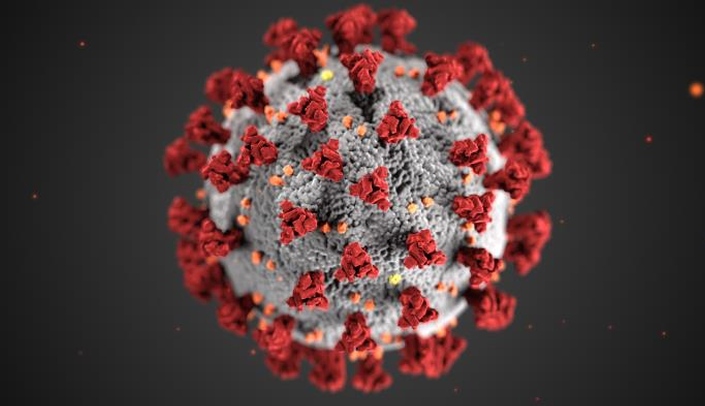The UNMC Nebraska Neuroscience Alliance has announced the following rapid response grant opportunities related to COVID-19.
Application Deadline: Monday, May 18 at 5 p.m. (CST)
Funding Decisions: To be announced by Thursday, May 21
Submission: Submit completed application to Doug Meigs (doug.meigs@unmc.edu). Direct questions to Dr. Howard Gendelman (hegendel@unmc.edu), Chairman, UNMC Department of Pharmacology and Experimental Neuroscience.
Purpose: To immediately support groundbreaking, impactful research on the relationship between severe acute respiratory syndrome coronavirus 2 (SARS-CoV-2) and the central nervous system (CNS). Funding is available for UNMC interdisciplinary research teams working in basic science, epidemiology, natural history, and translational research to study neurological disease complications for individuals with the COVID-19 respiratory disease. CNS complications linked to laboratory-confirmed SARS-CoV-2 infection is often life threatening. Understanding neurological considerations for COVID-19 patients will improve differential diagnosis and best optimal clinical outcomes while facilitating prompt testing, isolation, and prevention of viral transmission.
Award Amounts/Budget: $80,000 is available from the Nebraska Neuroscience Alliance (NNA), endowed by the University of Nebraska Foundation. Funding must be commensurate with the work proposed. Leveraging other available funds, if possible, is encouraged; start-up, department, center and other such funds may be added/used. In order to share the available funds across multiple pilot studies, we ask investigators to request the smallest amount a study requires. We anticipate funding two pilot studies from the available $80,000 funding.
Eligibility: The Principal Investigator must be a full-time faculty member with primary academic appointment at UNMC. Team building is encouraged to assure necessary expertise.
Grant Duration: Up to 12 months (no extensions).
Eligible Expenses:
Funds are available for technical support, not Principal Investigator salary. Funds may support salary for research staff including trainees (but not faculty), University-based core and other support services, and supplies. Biostatistical analysis can be obtained through the College of Medicine’s Memorandum of Understanding (MOU) with CCORDA and does not need to be budgeted.
Requirements for Applications:
This is an expedited application process. Please prepare a document (PDF or Word) as follows: minimum of 11-point font such as Arial, Helvetica, Times, or similar, with minimum 0.75″ margins on all sides:
Pages 1 and 2: A two-page document including one or two Specific Aims (no more than two), Significance to COVID-19, any relevant Preliminary Data, and Research Plan. Any relevant figures with legends can be placed on the optional Pages 4-5 below, in large enough format to enable viewing and reading (see below).
Page 3: A budget with justification, and statement on the qualifications of research team, emphasizing ability to carry out the proposed work. Indicate the source of other funds to be used if applicable.
Pages 4-5 (optional): Compliance, References, and Tables/Figures: The work must follow all institutional policies concerning human and/or animal subjects and safety. State if IRB, IACUC, or IBC is required with an explanation of prior approval or communication with the regulatory body on the timeline for approval. Indicate whether the work requires special facilities or equipment (e.g. BSL-2 or BSL-3 labs, Class II Biological Safety Cabinets) and if you have access to those facilities. Guidance can be found on the CDC website and/or by contacting UNMC IBC. Proper compliance and time to initiate project is a criterion for review in this rapid response mechanism. Pages 4-5 may also include optional References and any relevant figures/tables. Please do not shrink display items or text to a small size, two items maximum.
Review Process: All complete applications will be submitted to three independent reviewers with two days to determine award recipients. Nebraska Neuroscience Alliance funds will be dispersed through the Department of Pharmacology and Experimental Neuroscience.
Selection Criteria will include:
- High impact outcome – scientifically, clinically and/or locally
- Clear links to neurological disease and syndromes
- Likelihood of leading to long-term research program with extramural support
- Uniqueness – lack of others known to be applying this approach, or if so, unique skills so project can be done better/quicker
- Feasibility and ability of the principal investigator and team to carry out the work
